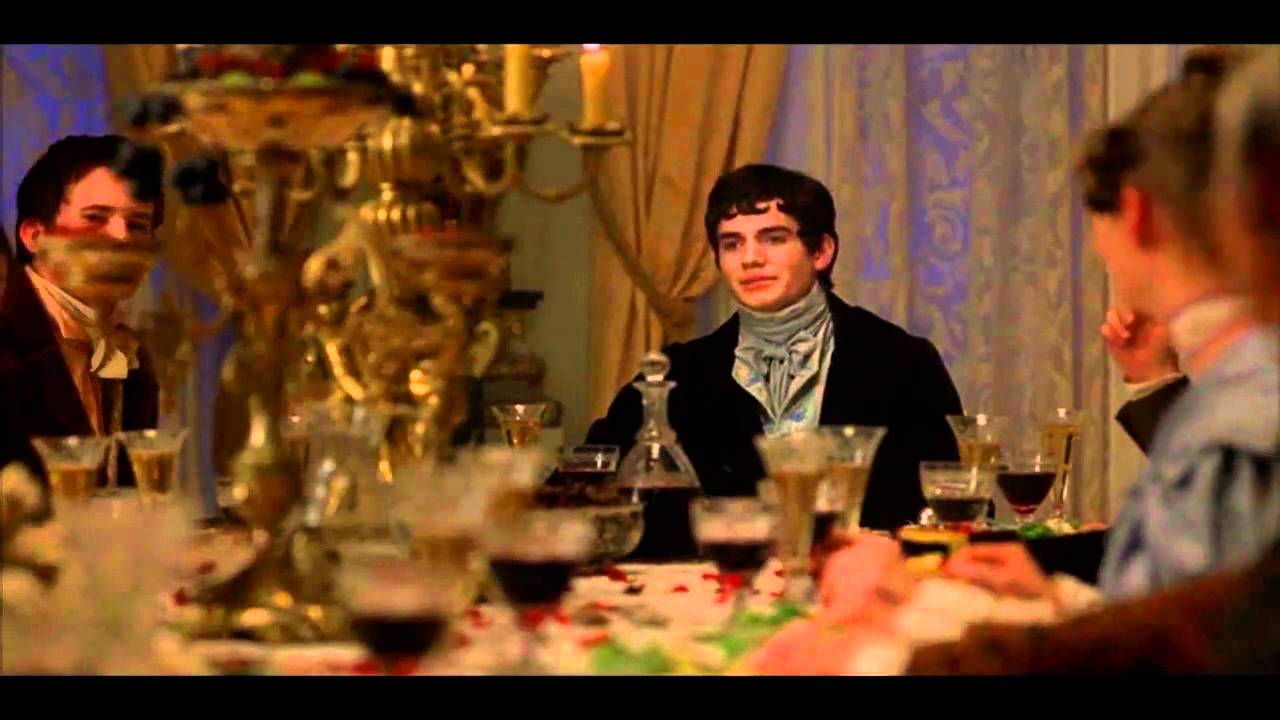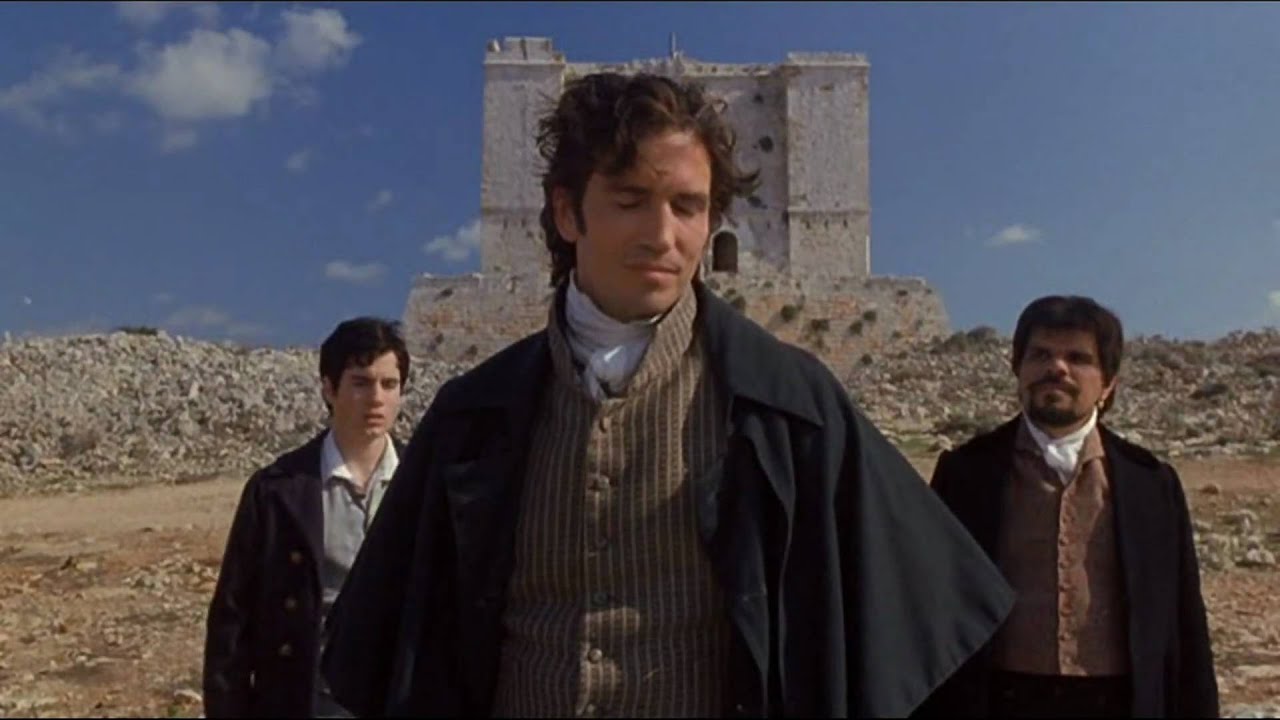The Count of Monte Cristo (2002)

🎬 The Count of Monte Cristo (2002)
The Count of Monte Cristo (2002), directed by Kevin Reynolds, is a thrilling and captivating adaptation of Alexandre Dumas’s classic novel. The story, set in the early 19th century, follows the tale of Edmond Dantès, a young, wrongfully imprisoned man who seeks revenge on those who betrayed him. With its combination of adventure, betrayal, and redemption, the film successfully brings the timeless themes of Dumas’s novel to life, while offering a fresh cinematic experience for both fans of the book and newcomers to the tale. The film’s gripping narrative, strong performances, and lush production design make it a standout in the genre of historical adventure.
The story begins with Edmond Dantès (played by Jim Caviezel), a promising young sailor who is on the brink of marriage to his beloved Mercedes (Dagmara Domińczyk). However, his life takes a drastic turn when he is falsely accused of treason by a group of conspirators who include his rival Fernand (Guy Pearce), the jealous former lover of Mercedes; Danglars (Alfred Molina), a greedy and ambitious man; and Villefort (Richard Harris), a corrupt prosecutor. These men conspire to have Edmond imprisoned in the Château d’If, a notorious island prison off the coast of France, where Edmond spends 13 years in isolation, slowly losing hope for his future.
As Edmond endures the years of torment, he befriends an older prisoner, Abbé Faria (Luis Guzmán), who becomes a father figure to him. Faria educates Edmond in a wide range of subjects, from philosophy to languages, and even reveals the location of a vast fortune hidden on the island of Monte Cristo. Upon Faria’s death, Edmond escapes from prison, taking the treasure with him and beginning his transformation into the Count of Monte Cristo. With his newfound wealth and knowledge, he embarks on a journey of revenge against the men who betrayed him, all while trying to regain the love of Mercedes and right the wrongs done to him.
At the heart of The Count of Monte Cristo is Edmond’s evolution from a naïve and wronged man into a calculating and determined individual seeking retribution. Jim Caviezel gives a compelling performance as Edmond Dantès, portraying the character’s transition with depth and subtlety. As Edmond transforms into the cold and vengeful Count, Caviezel’s performance is marked by a mix of vulnerability and strength. His portrayal captures Edmond’s internal struggle—his desire for justice and his growing detachment from humanity as the thirst for revenge begins to consume him. The film does an excellent job of exploring Edmond’s emotional and psychological journey, making his quest for vengeance feel both earned and tragic.
Guy Pearce delivers a memorable performance as Fernand, the antagonist who betrays Edmond out of jealousy and ambition. Fernand’s motivations are rooted in his insecurities and desire to win Mercedes’s love, which ultimately leads him down a dark path. Pearce’s portrayal of Fernand makes him a formidable opponent, but also a deeply flawed character, driven by selfishness and envy. His performance adds complexity to the film, showing that the villains are not simply evil but are driven by their own internal conflicts and desires.
Mercedes, played by Dagmara Domińczyk, is another key character who adds an emotional layer to the film. She is the woman Edmond loves, but their relationship is torn apart by his imprisonment and the betrayal of his friends. Mercedes’s love for Edmond remains strong throughout the years, but she is caught in a difficult position, having married Fernand after believing Edmond was dead. Domińczyk portrays Mercedes with a sense of longing and heartache, making her a sympathetic character caught in the turmoil of the men’s rivalry. The film’s exploration of love, loss, and reconciliation is one of its emotional driving forces, with the relationship between Edmond and Mercedes offering both hope and tragedy.
The film’s pacing is well-balanced, with a mix of action, drama, and suspense that keeps the audience engaged throughout. The plot weaves together various storylines—the revenge plot, Edmond’s relationship with Mercedes, and the growing tension between the conspirators—as the narrative unfolds toward its inevitable conclusion. The moments of action, such as Edmond’s escape from prison and his confrontations with the men who wronged him, are thrilling and well-executed, offering a satisfying sense of payoff as Edmond begins to exact his revenge.
The film’s production design is another standout feature, as it captures the grandeur and elegance of the period while also reflecting the dark and brooding nature of Edmond’s journey. The opulent sets, such as the grand palaces and luxurious estates, contrast with the desolate and grim Château d’If, creating a visual representation of Edmond’s transformation. The costumes and cinematography further enhance the atmosphere of the film, immersing the audience in the historical context of the story.
The music, composed by Edward Shearmur, complements the film’s tone, adding emotional weight to the dramatic scenes and enhancing the suspense during the more thrilling moments. The score provides a sense of grandeur and urgency, which helps elevate the film’s emotional depth and keeps the audience invested in Edmond’s journey.
One of the most compelling aspects of The Count of Monte Cristo is its exploration of the themes of justice, revenge, and forgiveness. The film raises important questions about the morality of seeking vengeance and the cost it has on the individual. As Edmond becomes more consumed by his desire for revenge, he begins to lose sight of the man he once was, and his quest for justice becomes clouded by anger and bitterness. The film illustrates the emotional and psychological toll that revenge can take on a person, and it suggests that redemption can only come through forgiveness and reconciliation. These themes resonate deeply, making the story not just a tale of adventure, but one of personal growth and moral reflection.
In conclusion, The Count of Monte Cristo (2002) is a riveting adaptation of the classic novel, blending action, drama, and emotional depth to create a captivating cinematic experience. Jim Caviezel’s strong performance as Edmond Dantès anchors the film, while the supporting cast, including Guy Pearce and Dagmara Domińczyk, adds complexity to the story’s exploration of love, betrayal, and revenge. The film’s engaging plot, stunning production design, and emotional themes make it a standout adaptation that successfully brings the timeless tale to a new generation. The Count of Monte Cristo is a powerful story of vengeance, redemption, and the cost of justice, and it continues to be a highly regarded film in the adventure genre.










